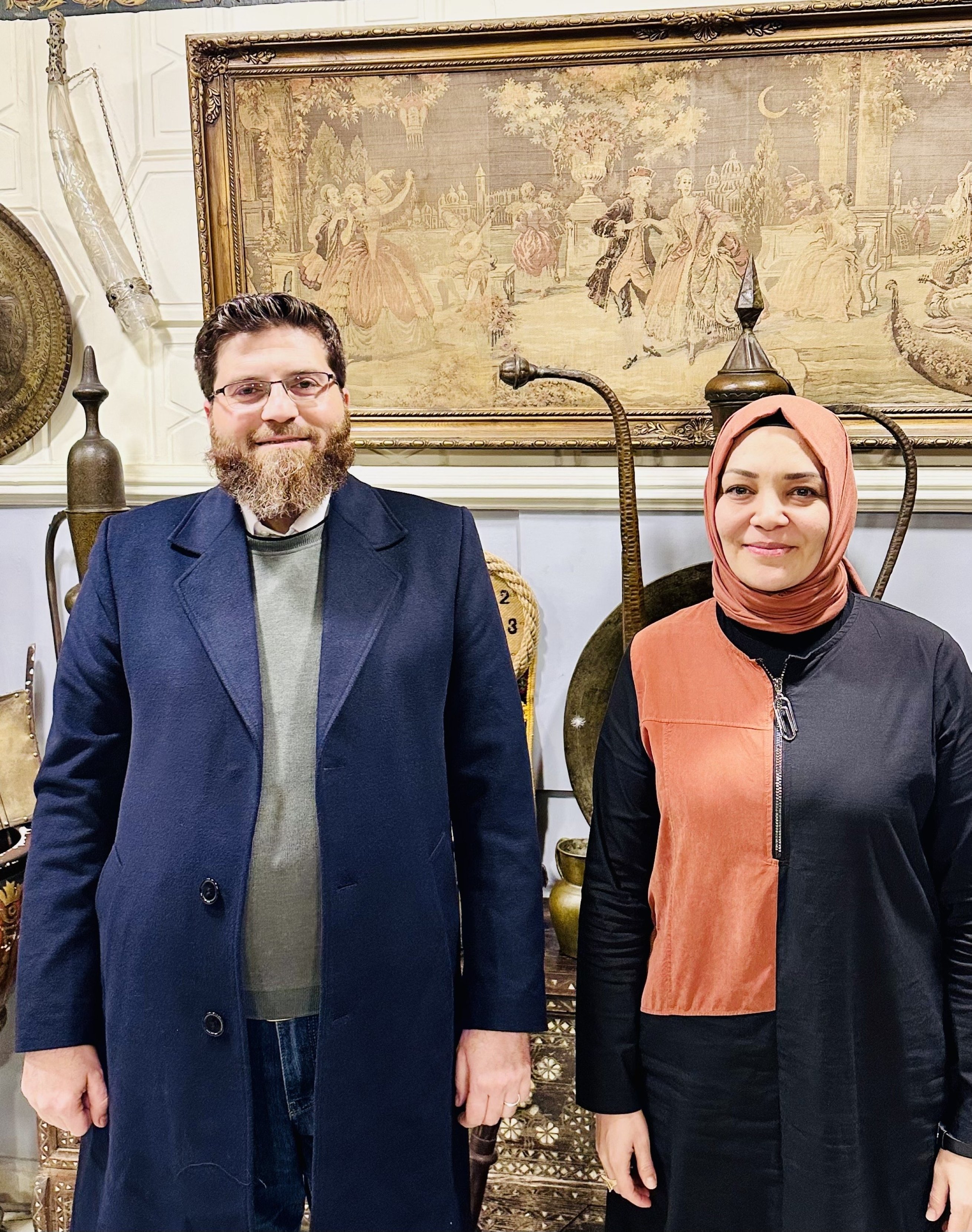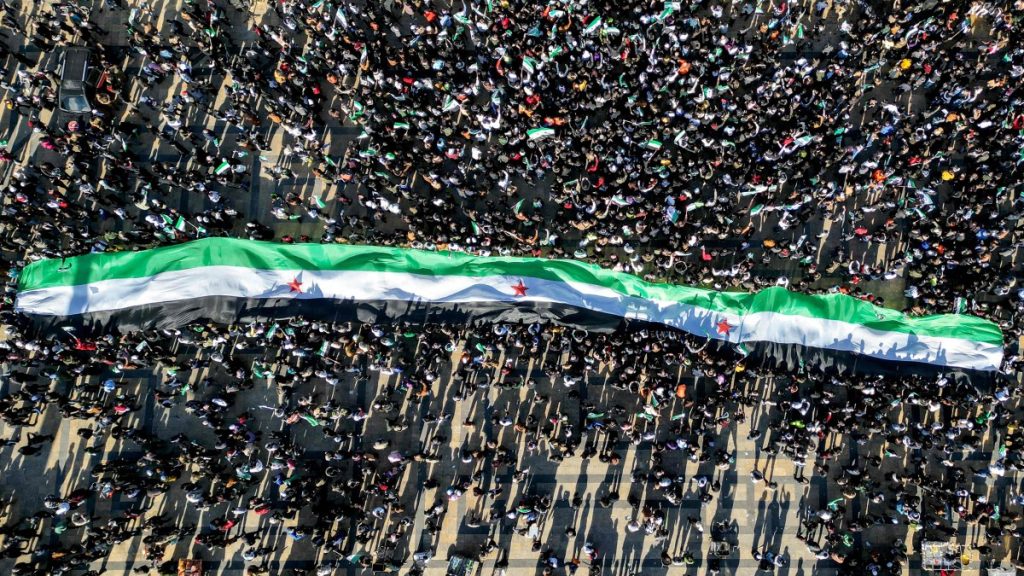We are in Aleppo right now, which had been squeezed by Russian airstrikes and Iranian-backed militias in 2016, subjugated by a siege and had had hundreds of thousands of its children martyred due to the oppressive regime of Bashar Assad for 13 years.
I will share my notes on Syria in the following articles but first I would like to say a few words about our meeting with Mr. Mohammad Abu Nasr, who was appointed as a member of the Political Affairs Commission by the new administration in Aleppo.
Before Aleppo, Mr. Abu Nasr was the head of a similar commission in Idlib. He is an engineer and studied Islamic sciences. His family is one of the richest families in Aleppo. He proudly tells us that his maternal grandfather was an officer in the Ottoman army and that his family sent local sweets to Sultan Abdulhamid II and received a certificate of appreciation from the Sultan.
When he says, “I am someone who has not seen his mother for 12 years,” a veil of sadness passes over his eyes. He could not be with his grandparents when they passed away.
You hear similar stories from everyone you talk to in Aleppo. The restaurant owner who hosted us for dinner and his brother were reunited after 13 years. His brother graduated from Van Yüzüncü Yıl University in Türkiye. He too has returned to serve in the reconstruction of his country.

Mr. Abu Nasr explained that their priority was to restore order and security so that refugees who had to leave Syria could return and businesses and factories could open.
He said that the terrorist organization PKK left some hitmen when it left Sheikh Maqsoud and that they tried to disrupt the peace by assassinating local residents with snipers. He also said that terrorists attacked to destroy water resources but that they will overcome this problem. Recalling that in Deir ez-Zor the local population rose up and expelled the PKK terrorists, he said that the PKK/YPG problem will be solved before it turns into a big problem – by fighting if necessary.
He underlined that the people of Aleppo took to the streets for the first time without being forced to do so, that even people who had no apparent problem with the regime were living in fear and that the wall of fear has now collapsed for everyone.
He also added the torture in Sednaya prison was only 5% of all the barbarity of the Assad regime and that even in medieval Europe such atrocities did not exist and that the new administration would work to expose these crimes.
He said that the amnesty after the liberation of Aleppo led to the fall of Damascus and that people were impressed by the just behavior of the opposition. In Aleppo, even government officials were kept on duty. He explained that the opposition’s amnesty decision was taken because of the end of the war and those who were suspected of being guilty would be tried in the courts.
Lastly, I would like to quote what he said about Türkiye as it is: “Syrian people are generally very loyal. Our loyalty to Türkiye will continue. This is not only our victory but also the victory of those who supported us. We did not take some of the racist anti-Syrian views that emerged in Türkiye very seriously. My grandfather on my mother’s side was an officer in the Ottoman army. The bond that binds us together goes far beyond politics.”


